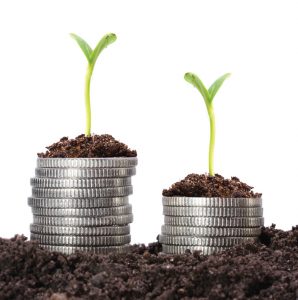
partner: Tax Advisory, Stonehage Fleming
South Africa
What is different about farming tax? One of the most significant differences is that, unlike other businesses where depreciation can be claimed over time on certain expenditure, producers can deduct capital expenditure in full from farming income. This includes expenditure on roads, dams, farm buildings and more.
Unclaimed capital expenditure can also be added to the capital gains tax (CGT) base cost of the farm when selling it. Producers also only have to account for livestock at very low closing stock values and the Estate Duty Act makes provision for the farm to be included in the estate at market value less 30%.
As is the trend internationally, part-time farming is also increasing in South Africa. This is positive, contributing financial and business acumen. Anti-hobby legislation provides that a part-time producer must have a reasonable prospect of deriving taxable income within a reasonable time period in order to claim losses against other taxable income.
The optimum structure for a farming business
It is important to have the optimum structure for the farming business, not only as far as running the business is concerned, but also for purposes of succession planning. The options to consider are farming in a company versus farming in a trust versus farming in your own name. The farming and land-owning entities also do not have to be the same. It is important to remember that there is not a general right or wrong structure, but there is an ideal one for each person’s circumstances.
Company
Positive factors include the ease of doing business and being supported by the Companies Act, flexibility, good continuity and a low tax rate. But taking money out of the structure will cost you money in the form of dividend tax. In terms of section 7C of the Income Tax Act, donations tax can be payable on interest-free loans to companies underneath a trust. It could be better to rather charge interest, because the company would be able to claim a deduction. Unclaimed capital expenditure is not forfeited when the producer dies.
Trust
Trusts provide flexible and good continuity, but the ease of doing business is not that great and trusts are not recognised everywhere internationally. The tax rate is quite high at 45%, although it can be reduced if profits are distributed to beneficiaries. Unclaimed capital expenditure is not forfeited when the producer dies. Compared to companies, there is no tax cost when taking money out of the business for living expenses.
Individual
Farming in your own name with the land owned by a company or trust can be quite beneficial. Section 7C is not a problem, neither is there a tax cost to take money out of the structure. Cost in respect of capital expenditure on the land can be claimed against farming income. Losses can be deducted from other income. There is no continuity though on death and it may be advisable (for purposes of VAT and unclaimed capital expenditure) to transfer the business before death. It is also advisable to acquire licences and long-term contracts in a company or trust as opposed to in your own name.
Estate planning
How to split your farming business when you die, is a complicated decision. It depends on the number of children and if any or how many of them are interested in continuing with farming. Sub-dividing land is seldom a good option. Children’s future careers should be monitored from an early age – expectations should be managed and investment decisions taken accordingly. Communication is vital – there should be no surprises after death. If the total estate consists of a farm and for example also cash, it must be remembered that it should not be equally split based on value between the children. Cash produces income on a passive basis, whereas a farm needs constant input and investment. During the life of the producer those involved in the farming must be remunerated at market value – any surplus can be distributed to other children.
For more information visit www.stonehagefleming.com.



















